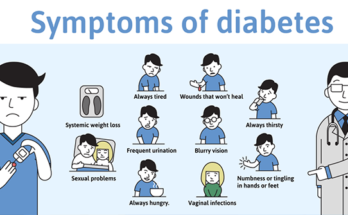Introduction
Cervical cancer, a form of cancer that occurs in the cells of the cervix, has been a growing concern, particularly among young women. Despite significant advancements in medical science, many young women remain unaware of the risks and symptoms associated with cervical cancer, leading to delayed diagnoses and treatment. This blog aims to shed light on the challenges faced by young women concerning cervical cancer, the importance of early detection, and the steps we can take to empower and support those affected by this condition.
Understanding Cervical Cancer
What is Cervical Cancer?
Cervical cancer originates in the cervix—the lower part of the uterus that connects to the vagina. Most cases of cervical cancer are caused by persistent infections with certain strains of the human papillomavirus (HPV). These HPV infections can lead to abnormal changes in cervical cells, which, if left untreated, can develop into cancer over time.
Common Symptoms and Risk Factors
Cervical cancer often develops slowly and may not present noticeable symptoms in its early stages. However, as the disease progresses, symptoms can include:
- Unusual vaginal bleeding, such as bleeding after intercourse or between menstrual periods
- Pelvic pain or pain during intercourse
- Unusual vaginal discharge
Risk factors for cervical cancer include:
- Persistent HPV infection
- Smoking
- A weakened immune system
- Having multiple sexual partners
- Early sexual activity
Challenges Faced by Young Women
Delayed Diagnosis Due to Misinterpreted Symptoms
One of the significant challenges young women face is the delayed diagnosis of cervical cancer. Symptoms like unusual vaginal bleeding or pelvic pain are often mistaken for other conditions, such as menstrual irregularities or infections. This misinterpretation can lead to a delay in seeking medical advice and, consequently, a delayed diagnosis.
Emotional and Social Challenges
Being diagnosed with cervical cancer at a young age can bring unique emotional and social challenges. The impact on fertility, relationships, and self-esteem can be profound. Young women may feel isolated or struggle to find support from peers who may not understand the severity of their condition. Addressing these emotional and social aspects is crucial for the overall well-being of those affected.
Considerations for Early Detection
The Role of Screening and Vaccination
Early detection of cervical cancer significantly improves treatment outcomes. Regular screening through Pap smears and HPV tests can detect precancerous changes in cervical cells, allowing for early intervention. Additionally, the HPV vaccine is a powerful tool in preventing the types of HPV infections most commonly linked to cervical cancer. Vaccination is recommended for young women (and men) starting at ages 11-12, but it can be administered up to age 26.
Guidelines for Young Women and Healthcare Professionals
Healthcare professionals play a critical role in the early detection of cervical cancer. They should encourage young women to participate in regular screenings and provide education on the importance of the HPV vaccine. Establishing open communication channels between healthcare providers and patients is essential to ensure that young women feel comfortable discussing their symptoms and concerns.
Empowerment and Support
Promoting Awareness and Advocacy
Raising awareness about cervical cancer is vital. Educational campaigns and community outreach programs can help young women understand the risks, symptoms, and preventive measures associated with cervical cancer. Advocacy efforts can also focus on promoting policies that support access to screening and vaccination programs.
Resources and Support for Women Diagnosed with Cervical Cancer
Support networks and resources are crucial for women diagnosed with cervical cancer. These resources can include counseling services, support groups, and educational materials that provide information on treatment options and coping strategies. Connecting with others who have experienced similar challenges can offer emotional support and practical advice.
Conclusion
Cervical cancer in young women presents unique challenges, but with increased awareness, early detection, and robust support systems, we can make a significant impact in reducing its prevalence and improving outcomes for those affected. Regular screenings and the HPV vaccine are critical tools in the fight against cervical cancer. By promoting awareness and advocating for comprehensive support, we can empower young women to take control of their health and ensure that no one faces this battle alone.
To keep yourself and your loved ones safe, commit to regular screenings and educate those around you about the importance of early detection. Join us in spreading awareness and supporting those affected by cervical cancer. For personalized guidance and resources, consider booking a call with a healthcare professional today. Together, we can make a difference in the fight against cervical cancer.



